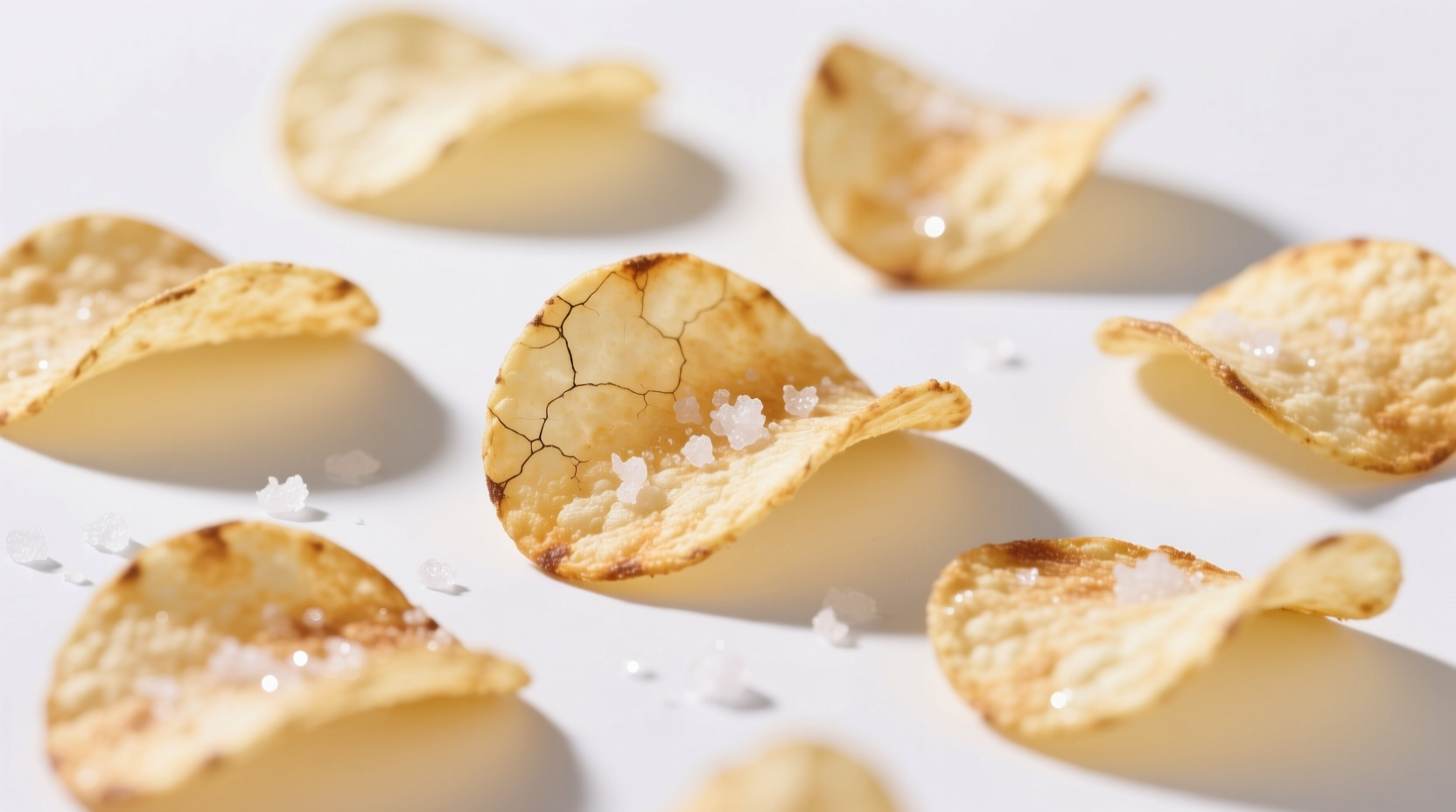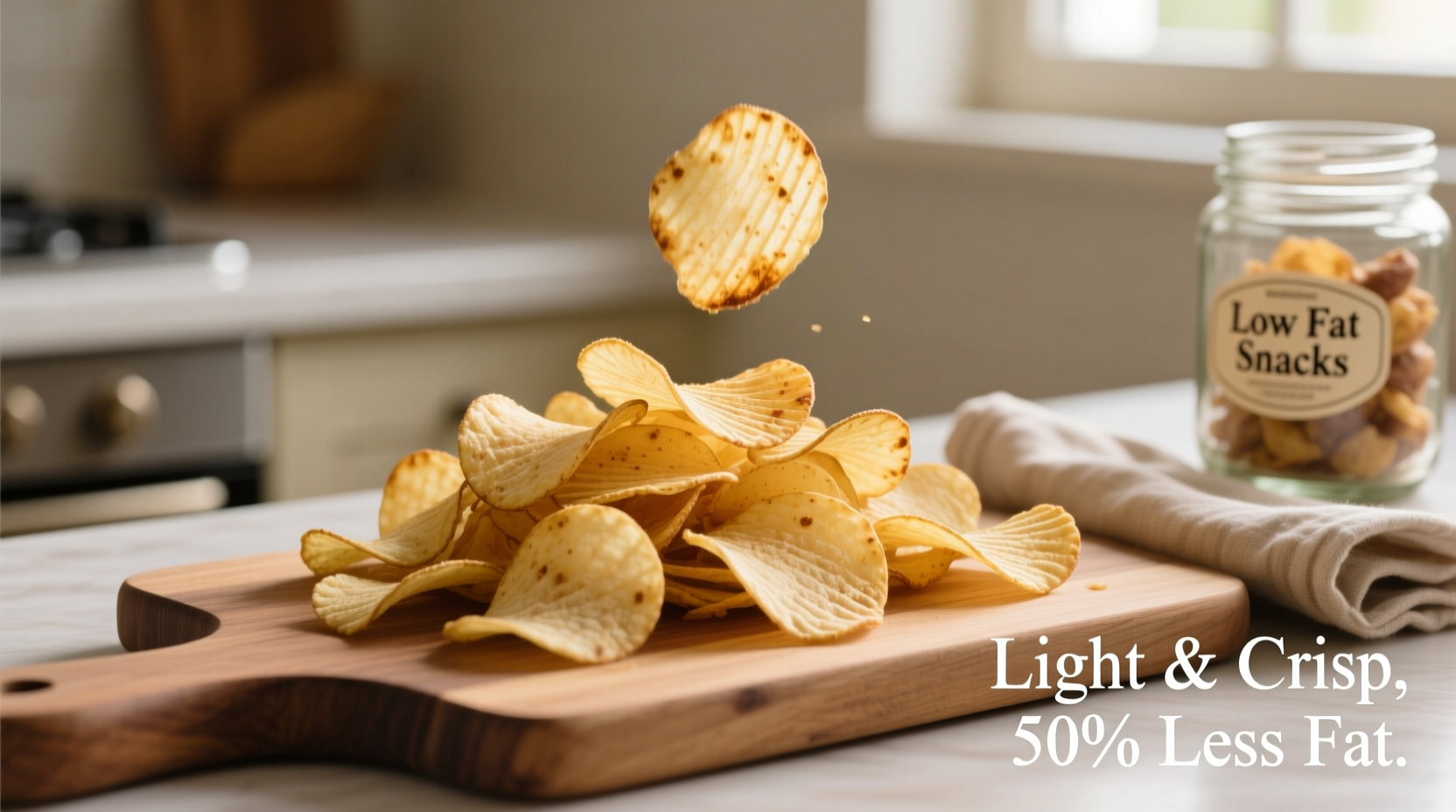When you're scanning grocery store shelves for a guilt-free snack, "low fat potato chips" seem like the perfect solution. But what if we told you these products often deliver little actual nutritional advantage while potentially introducing other concerns? Understanding the reality behind low fat potato chips can help you make genuinely smarter snack choices that align with your health goals.
The Truth Behind "Low Fat" Labeling
The term "low fat" on potato chip packaging follows specific FDA regulations. According to the FDA's nutrient content claims guidelines, a product can be labeled "low fat" if it contains 3 grams of fat or less per serving. However, this technical compliance doesn't necessarily translate to a healthier product.
Manufacturers achieve this reduced fat content primarily through two methods: baking instead of frying, or using modified potato starches that require less oil. While these approaches do reduce fat, they often create unintended consequences for both nutrition and taste.
| Nutritional Component | Regular Potato Chips (1 oz) | Low Fat Potato Chips (1 oz) |
|---|---|---|
| Calories | 152 | 140-160 |
| Total Fat | 10g | 2-3g |
| Saturated Fat | 1.5g | 0.5g |
| Carbohydrates | 15g | 20-25g |
| Sugars | 0g | 1-3g |
| Sodium | 170mg | 200-250mg |
Data sourced from the USDA FoodData Central database reveals a consistent pattern: while low fat versions reduce total fat by 70-80%, they typically increase carbohydrates by 25-50% and often contain added sugars to compensate for flavor loss from reduced fat.
How Low Fat Chips Are Made (And What Gets Added)

The manufacturing process for low fat potato chips involves significant modifications to traditional methods:
- Baking instead of frying: Many low fat chips are baked rather than deep-fried, reducing oil absorption. However, this process often creates a different texture and can increase acrylamide formation—a potential carcinogen that forms when starchy foods are cooked at high temperatures.
- Modified starches: Some manufacturers use specially processed potato starches that absorb less oil during frying, technically reducing fat content while maintaining a fried texture.
- Added flavor enhancers: To compensate for flavor loss from reduced fat, manufacturers frequently add extra salt, sugar, MSG, and artificial flavors.
A 2022 study published in the Journal of Food Science found that low fat snack products contained, on average, 18% more sodium and 23% more added sugars than their regular counterparts to maintain palatability after fat reduction.
Are Low Fat Potato Chips Actually Healthier?
The simple answer is: not significantly. While they do contain less fat, several factors diminish their health advantage:
- Calorie parity: Most low fat potato chips contain nearly identical calories to regular chips due to increased carbohydrates.
- Nutrient displacement: The refined carbohydrates in low fat chips cause faster blood sugar spikes than the fat-carbohydrate balance in regular chips.
- Portion distortion: Research from the Cornell Food and Brand Lab shows people typically consume 28% more of "low fat" labeled snacks, negating any potential calorie savings.
- Processing level: Both regular and low fat potato chips are highly processed foods with minimal nutritional value beyond calories.
Better Alternatives for Health-Conscious Snackers
If you're looking for genuinely healthier crunchy snack options, consider these alternatives that provide better nutrition without relying on "low fat" marketing:
- Veggie chips made from whole vegetables: Look for products with minimal ingredients and no added sugars. Kale chips, beet chips, and sweet potato chips made with healthy oils offer more nutrients.
- Roasted chickpeas: High in protein and fiber, providing sustained energy without blood sugar spikes. A single serving (1/2 cup) contains about 130 calories, 6g protein, and 5g fiber.
- Homemade baked potato slices: Thinly slice potatoes, toss with a small amount of olive oil (1 tsp per potato), and bake until crisp. You control the ingredients and can achieve about 30% less fat than store-bought chips.
- Nut and seed mixes: Almonds, walnuts, and pumpkin seeds provide healthy fats, protein, and fiber that promote satiety.
Smart Label Reading for Healthier Snack Choices
When evaluating snack options, focus on these elements rather than just "low fat" claims:
- Ingredient list length: Fewer ingredients generally indicate less processing. Aim for products with 5 or fewer recognizable ingredients.
- Fiber content: Choose snacks with at least 3g of fiber per serving to help moderate blood sugar response.
- Protein content: Snacks with 5g+ protein per serving provide better satiety.
- Serving size reality: Compare the listed serving size to what you'd actually eat. Many snack packages contain multiple servings.
- Added sugars: Check for hidden sugars like maltodextrin, dextrose, or corn syrup solids that often replace fat in "low fat" products.
The Dietary Guidelines for Americans recommend focusing on whole, minimally processed foods rather than relying on modified versions of highly processed snacks. As registered dietitian Marion Nestle explains, "The healthiest snacks aren't found in the 'diet' aisle—they're found in the produce section."
Making Informed Snack Decisions
Instead of searching for a "healthy" version of an inherently processed food, shift your approach to snacking:
- Consider why you're snacking—hunger, boredom, or habit—and address the root cause
- Pair small portions of your favorite snacks with protein or fiber-rich foods
- Practice mindful eating by removing distractions while snacking
- Keep whole food snacks readily available for when cravings strike
Remember that occasional potato chips—regular or low fat—won't derail a generally healthy diet. The key is making informed choices and understanding that "low fat" doesn't automatically mean "healthy." True nutritional value comes from whole foods, not processed alternatives with modified labels.











 浙公网安备
33010002000092号
浙公网安备
33010002000092号 浙B2-20120091-4
浙B2-20120091-4